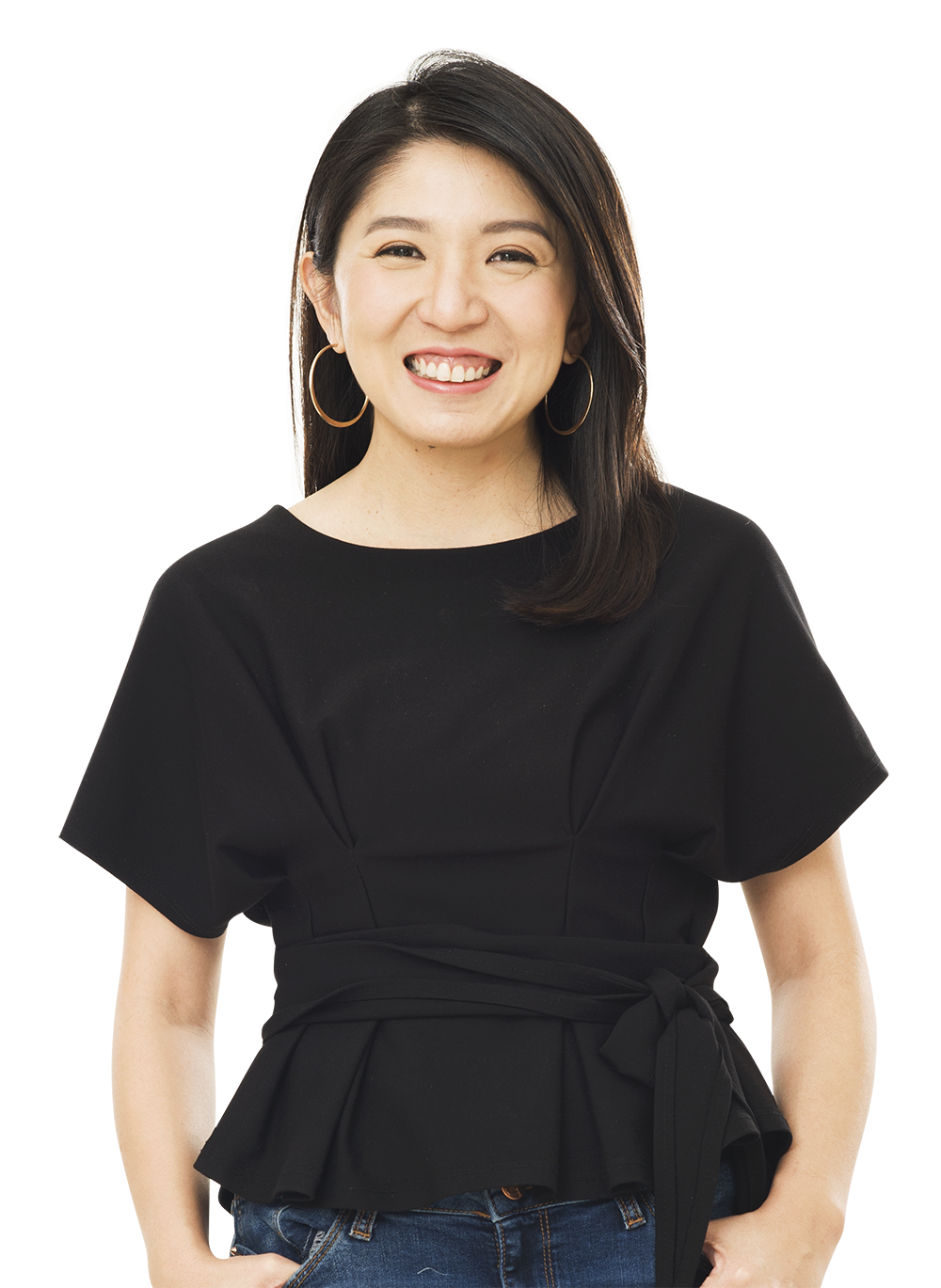
Yeo Bee Yin talks to Gates Cambridge about her path from master's student to government minister in Malaysia.
I don’t see what I am doing as a career but as a responsibility entrusted to me. My focus is to do the best in whatever position I hold, big or small, in the interests of the people of Malaysia and our next generations.
Yeo Bee Yin
Yeo Bee Yin [2009] did her master's in chemical engineering as a Gates Cambridge Scholar. She is now Minister of Energy, Science, Technology, Environment and Climate Change in Malaysia where she has helped to set up a nationwide ban on the import of plastic waste and published a 12-year roadmap that includes a legal framework on eliminating the use of single use plastics in Malaysia by 2030. She spoke to Gates Cambridge about her career path.
Gates Cambridge: How did your interest begin in chemical engineering?
Yeo Bee Yin: I got into chemical engineering by accident. My interest began after I started my bachelor's degree coursework and learnt about thermodynamics, heat transfer, process engineering and optimisation etc.
GC: Did you do a research project as part of your MPhil and, if so, what did you focus on?
YBY: My master’s degree was by coursework. However, there was a small research project involving a 10,000-word thesis. The research was about mathematical modelling for terahertz signals on pharmaceutical tablet coating.
GC: How did the experience of being a Gates Cambridge Scholar impact what you are doing now? You have set up LEAP to promote leadership skills to students and have instigated a dialogue programme between policymakers and young people in addition to setting up tuition centres for the most disadvantages students and food banks. Was that influenced in any way by the focus on social leadership that is linked to Gates Cambridge?
YBY: Being a Gates Cambridge Scholar opened my eyes as I got to know many amazing individuals who, in their respective fields, are impacting the socio-economy of many countries around the world. I was also intellectually challenged through ideas exchanges with the other Gates Cambridge Scholars. I always remember what they told me about when Bill Gates visited Cambridge (unfortunately for me, he did not visit the university while I was studying there) and called on all the Gates Cambridge Scholars to make the scholarship worthwhile by using the funds invested in us to make as great an impact as possible. His words still impact my actions to this day.
GC: Did your experience at Cambridge generally impact the direction you have gone in since? What do you think was most useful about the experience in terms of your current career?
YBY: My experiences at Cambridge helped me to see things in a broader and deeper way. The lectures I attended at Cambridge inspired me greatly. As a matter of fact, I first learnt the concept of sustainability and climate change systematically and in an in-depth manner through the elective subjects I took for my MPhil programme, such as sustainable energy, sustainable water engineering etc.
GC: How did you get involved in politics and what business did you run prior to becoming a politician? Has this also had an impact on the way you do politics?
YBY: I wanted to go back to Malaysia to contribute to my country. I started volunteering for the Democratic Action Party in early 2012 with the sole intention that I wanted to do my best to help to bring systemic change to the country through politics and policy change. It was beyond my wildest imagination then that I would eventually run for office.
GC: You became the youngest state assemblywoman in Selangor in the 2013 elections and won a large percentage of votes. To what do you attribute that?
YBY: I attribute my winning a large percentage of votes to my party’s image and how it appealed to the constituency's voter demographics. It is much more about my party than about me.
GC: You are now a minister with a portfolio that includes science. How much have your studies helped you in this role?
YBY: A lot. Nevertheless, it is actually not about particular fields of knowledge that I have acquired through my studies as an engineering student but the skill of understanding difficult topics and learning quickly as well as the ability to analyse numbers and dissect complicated scenarios.
GC: Have your priorities changed since you entered politics?
YBY: No. I remind myself every day why I am in politics – to do the best I can to make Malaysia a country that is free from corruption and is fair, competitive, prosperous and peaceful. It is my deep desire to see that every child in Malaysia, no matter where they come from, even from the most rural part of Malaysia, or what their family background, race or religion gets an equal opportunity to realise their potential in life.
GC: You have pressed for greater transparency and have faced attempts by others to defame you. What is the main way to counter such political manoeuvring?
YBY: You just have to take it as part of the job and not complain or be affected negatively by it. It also helps to be shrewd in your communication strategies.
GC: What is it like being a woman in politics in Malaysia?
YBY: Just like in many other places in the world, being a woman leader means you are often subjected to prejudice that you are the weaker gender or are judged by how you look. Only through hard work, competency and professionalism can such prejudice be shed. I see fighting prejudice as part and parcel of women leaders’ lives. My advice to young woman leaders is to continue to shine, to uphold your integrity and to move on, far and up. Let the quality of our work speak for our leadership.
GC: You brought out a book earlier this year on your vision for the future. What are the main planks of that vision and where would you like to see yourself in the next five to 10 years?
YBY: Not even in my wildest dreams did I imagine that a small town girl like me could play a part in deciding the future of my beloved country. Random episodes in my life accidentally brought me into politics, an arena that people commonly associate with greed, money and power. At the end of 2016, after six years of seeing and experiencing real politics, I wanted to tell the Malaysian public, especially the young, that such a presumption about politics is untrue. Politics is about pursuing dreams, ideals and the belief that our country can and will be better in the future. That is why I decided to write the book. I wanted to share with my readers the nation-building issues that are close to my heart – institutions, education, youth, women, sustainable development and care for the more vulnerable members of society in terms of where we are now and what I dream for them in the future. I launched my book in mid of March 2018.
Malaysia experienced a change of government on 9 May 2018 for the first time since her independence 61 years ago. To everyone’s surprise including myself, I was chosen as one of the 30 Cabinet members of the new Malaysia. I am so grateful that this has given me the opportunity to be part of establishing new foundations for our beloved country.
Although my ministry may not be directly responsible for some of the topics that I have written about in the book, I will still use my influence in the Cabinet to ensure as many of those ideals and dreams are realised and I will constantly keep track of progress made towards them.
There is a saying that “one day is too long in politics”. No one could have imagined that we would be able change the government in Malaysia just two years ago. So, I usually don’t bother to “see myself” in five to 10 years’ time, especially in my political life, as I don’t see what I am doing as a career but as a responsibility entrusted to me. My focus is to do the best in whatever position I hold, big or small, in the interests of the people of Malaysia and our next generations. I will leave my tomorrow to worry about itself. What I need to worry about now is my country’s tomorrow.

Bee Yin Yeo
- Alumni
- Malaysia
- 2009 MPhil Advanced Chemical Engineering
- Corpus Christi College












